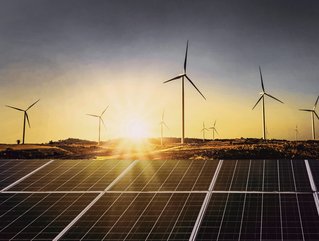Germany confirms further 8GW of wind and solar infrastructure by 2021

The German ruling coalition this week confirmed it will add 8GW of solar and wind power to the country’s national grid over the next three years, Green Tech Media reports.
Early in 2018, the coalition treaty established between Chancellor Angela Merkel’s Union alliance and the Social Democratic Party agreed to hold ‘special auctions’, in order to award 4GW of solar and 4GW of onshore wind contracts.
According to an agreement reached in November, “the federal government will hold auctions to procure 1 gigawatt each for onshore wind and solar in 2019, increasing to 1.4 gigawatt for each in 2020 and 1.6 gigawatt for each in 2021.”
These measures are predicted to reduce Germany’s carbon dioxide emissions by ‘up to 10mn tons’ by 2020. The German government intends for the measures to keep the country within reach of its target, to be 65% powered by renewable sources by 2030. According to Green Tech Media, renewables are expected to account for 38% of Germany’s energy consumption in 2018.
SEE ALSO:
- Google announces plans to build green energy data centre in Denmark
- Cimarex to acquire Delaware Pure-Play Resolute for $1.6bn
- Equinor outlays $84mn on minority shareholding in Scatec Solar ASA
- Click here to read the latest issue of Energy Digital
“The decision to maintain the 4 GW additional onshore wind capacity while stretching the tender period to three instead of two years is generally seen as a positive sign by BWE” (the German Wind Energy Association), said Christoph Zipf, spokesperson for the organisation. He continued by cautioning that “this must not hide the fact that the expansion path for renewables still lags far behind what would be necessary to implement the energy transition in Germany and to live up to the Paris climate change agreement.”
Zipf stated that “different studies and projections come to the result that in order to reach this goal, an annual installation of 5 gigawatts wind onshore is required.” Currently, although 8GW over three years maintain’s Germany’s position as the largest producer of photovoltaic and wind power in the EU, according to Greenmatch, “with the current expansion rates, the target of 65 percent renewables in 2030 under the coalition agreement will not be achieved,” said Henrik Maatsch, policy adviser, climate and energy, WWF Germany.






